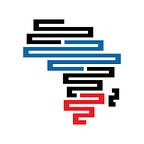World Environment Day: What we’re doing to tell climate stories in Africa
Teams’ investigations reveal negative effects of deforestation, illegal fishing and pollution
The effects of climate change are most clear in Africa with millions of livelihoods depending on natural ecosystems to survive. Yet not enough is being said and done to address the growing climate crises on the continent.
According to the Food and Agriculture Organisation of the United Nations (FAO), 2.8 million hectares of forest is lost in Africa annually due to deforestation — a problem which leads to rapidly increasing carbon emissions and contributes to a loss of biodiversity.
On top of the ecosystems’ decline, the UN Environmental Programme (UNEP) reports that Africa loses an estimated $195-billion annually of its natural capital due to illegal mining, logging, wildlife trafficking and unregulated fishing. By ways of training and mentoring journalists to tell data-driven stories that spotlight the crises, Code for Africa (CfA) works with partners to tackle the issues faced.
For this year’s World Environment Day, we’re highlighting the significant work done with our partners. From investigations that document deforestation in the Democratic Republic of Congo (DRC) to sea sensors used to monitor dynamite fishing in Tanzania, each project tackles region-specific conservation issues by providing accessible data and context with data-driven journalism that ultimately empowers citizens.
Data-Driven Journalism
Combining drone footage, video interviews, data visualisations and on-the-ground reportage, “Lungs of the Earth” focused on deforestation and poaching at the Virunga National Park, in the Democratic Republic of Congo. The effort was supported by Pulitzer Center on Crisis Reporting and WRI/Global Forest Watch.
Jacopo Ottaviani, Chief Data Officer at Code for Africa, spoke about the Congo Basin being under pressure due to deforestation and the key role the more than 700,000 km² plays in decreasing the effects of climate change.
“Precise, factual journalism helps understand the magnitude of the issues on the ground and, in turn, figure out sustainable solutions to develop local economies in countries like the DRC where millions live in poverty.”
The Data Academy also regularly contributes to important stories highlighting the dire situation many African countries face due to climate change. “Sucked Dry”, a series of investigations by InfoNile, calls attention to the negative effects of land grabs by foreign investors. Not only does this displace local communities, it also wreaks havoc on natural resources in Uganda, Sudan, Ethiopia and Egypt.
This multiple award-winning project was produced in a partnership between InfoNile, CfA, African Network of Centres for Investigative Reporting (ANCIR) and IHE Delft Partnership Programme for Water and Development, and supported by the Pulitzer Center on Crisis Reporting.
Tools
Oxpeckers’ MineAlert, built by CfA, is a tool that tracks mining activity information, while GreenAlert makes environmental impact assessments searchable to promote public and private sectors’ accountability in the mining sector.
Andiswa Matikinca, #MineAlert manager, Oxpeckers associate and award-winning journalist, has reported on coal mines threatening a UNESCO site and the future of coal use in South Africa among others.
“We don’t just host the data on the platform but dig deep into it to produce cutting edge data-driven investigations that highlight irregularities within the mining sector, noncompliance and other environmental issues faced by communities affected by mining,” said Andiswa Matikinca.
Oxpeckers, Africa’s first investigative environmental journalism unit and partner of CfA, also regularly publishes major investigations about poaching, climate change and pollution. Read more of their stories here.
Sensors
sensors.AFRICA is a pan-African citizen science initiative that uses sensors to monitor air, water and sound pollution. The aim is to give citizens actionable information about their air quality. Since its launch, the team has provided vital data on pollution levels to governments and the public in several African countries. Recently, we trained over 100 enumerators and designed an entirely new low-cost sensor to be used in Kenya’s first ever pilot data collection programme on household air quality in East Africa.
Constant Cap, Senior Product Manager for the initiative said the rate of bad air quality in cities is rapidly increasing. “Because there is very little data in African cities on the extent of air pollution, we have deployed low-cost air quality sensors in several African cities like Nairobi, Kisumu, Dar Es Salaam and Lagos to make this information more readily available.”
A separate tracking project, Sea Sensors.AFRICA, was launched in 2018 as part of the InnovateAfrica initiative by CfA, to monitor dynamite fishing in Tanzania, an activity that’s devastating to the ocean’s ecosystem. Using homemade or illegally sourced dynamite kills all species and nearby coral reefs within a certain radius when detonated.
By collecting underwater blast information from the coastline, the initiative helps provide data to inform the public and the government. Since inception, the project has contributed data for research papers and stories that have helped in bringing the issue to the fore.
______________
Code for Africa (CfA) is the continent’s largest network of civic technology and data journalism labs, with teams in 21 countries. CfA builds digital democracy solutions that give citizens unfettered access to actionable information that empowers them to make informed decisions, and that strengthens civic engagement for improved public governance and accountability. This includes building infrastructure like the continent’s largest open data portals at openAFRICA and sourceAFRICA, as well as incubating initiatives as diverse as the africanDRONE network, the PesaCheck fact-checking initiative and the sensors.AFRICA air quality sensor network.
CfA also manages the African Network of Centres for Investigative Reporting (ANCIR), which gives the continent’s best muckraking newsrooms the best possible forensic data tools, digital security and whistleblower encryption to help improve their ability to tackle crooked politicians, organised crime and predatory big business. CfA also runs one of Africa’s largest skills development initiatives for digital journalists, and seed funds cross-border collaboration.
